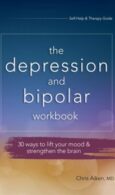Treatment for Bipolar Disorder
Effective Bipolar Disorder Treatment
Why An Integrative Therapy Approach Matters
Integrative Treatment for Bipolar Disorder: A Research-Based Approach
Integrative treatment for bipolar disorder combines conventional medication with complementary therapies to address the multifaceted nature of the condition. Research supports the effectiveness of a holistic approach, which includes mood stabilisers and antipsychotics, alongside psychotherapy, lifestyle modifications, and alternative treatments. Each week we will focus on small incremental changes to help you make better informed mood stabilising choices around: nutrition, sleep, exercise, life stress, light/sunlight exposure, pleasurable engaging and soothing activities, technology use, alcohol consumption, nicotine use, and illicit drugs.
Key Components:
- Medication Management: Mood stabilizers like lithium, anticonvulsants, and atypical antipsychotics are fundamental. They help stabilise mood swings and prevent relapse.
- Psychotherapy: Cognitive-behavioral therapy (CBT) and family-focused therapy (FFT) are proven to improve coping strategies and interpersonal relationships, reducing the risk of manic and depressive episodes. Additionally, Interpersonal and Social Rhythm Therapy (IPSRT) has shown significant benefits for managing bipolar disorder.
- Lifestyle Modifications: Regular exercise, a balanced diet, and adequate sleep are critical. Studies show that these lifestyle changes can significantly impact mood regulation.
- Alternative Therapies: Mindfulness meditation, yoga, and acupuncture have shown promise in reducing stress and improving overall well-being.
- Nutritional Supplements: Omega-3 fatty acids and certain vitamins, such as folic acid and vitamin D, may support brain health and mood stability.
Research Findings:
- The SMILES Trial:
- Improvement in Symptoms: Participants following a Mediterranean diet showed significant improvement in depressive symptoms compared to those receiving social support.
- Diet Quality: Better diet quality was associated with a reduction in depressive symptoms, highlighting the importance of nutrient-dense foods in managing mood disorders.
- Inflammation Reduction: The anti-inflammatory properties of the Mediterranean diet may contribute to mood stabilization by reducing systemic inflammation, which is linked to mood disorders.
- Exercise and Bipolar Disorder:
- Mood Regulation: Exercise stimulates the release of endorphins and neurotransmitters like serotonin and dopamine, which play a crucial role in mood regulation.
- Stress Reduction: Physical activity reduces stress levels and enhances resilience, helping prevent the onset of manic and depressive episodes.
- Cognitive Function: Studies indicate that regular exercise improves cognitive function and executive control, which are often impaired in individuals with bipolar disorder.
- Key Studies: Research published in the Journal of Affective Disorders and the International Journal of Bipolar Disorders found that structured exercise programs led to significant improvements in depressive and manic symptoms and overall quality of life.
- IPSRT (Interpersonal and Social Rhythm Therapy):
- Clinical Outcomes: IPSRT focuses on stabilising daily rhythms and improving interpersonal relationships. Clinical trials have shown that IPSRT can reduce the recurrence of manic and depressive episodes and improve overall functioning.
- Research Findings: A study published in the American Journal of Psychiatry reported that patients undergoing IPSRT had longer periods of stability and fewer relapses compared to those receiving standard care. IPSRT has been found to lower the risk of new mood episodes in Bipolar Disorder I by a staggering 66% over a 2 year period (Frank et al., 200%). It has also been found to treat Bipolar II depression as well as Quetiapine (Seroquel) (Swartz et al., 2019). It is an essential and extremely effective non-medication approach to mood regulation.
- Mood Regulation: By encouraging regular routines and addressing interpersonal issues, IPSRT helps patients manage the social and biological rhythms that influence mood stability.
- Metabolic Studies:
- Metabolic Syndrome in Bipolar Disorder: Individuals with bipolar disorder are at an increased risk of developing metabolic syndrome, which includes conditions like obesity, diabetes, hypertension, and dyslipidemia. This risk is often exacerbated by some psychotropic medications.
- Research Findings: A study in the Journal of Clinical Psychiatry found that patients with bipolar disorder have a higher prevalence of metabolic syndrome compared to the general population. The study suggests that metabolic monitoring should be a routine part of bipolar disorder management.
- Impact of Lifestyle Interventions: Incorporating diet and exercise into treatment plans can mitigate the risk of metabolic syndrome. The International Journal of Bipolar Disorders reports that lifestyle interventions can improve metabolic health and reduce the overall burden of the disorder.
- Nutritional Interventions: The SMILES trial’s findings also emphasize the role of a healthy diet in managing metabolic health, alongside its mood-stabilizing benefits.
Cognitive Behaviour Therapy (CBT)
CBT is a widely used form of evidence based therapy that looks at the way thoughts and beliefs influence our behaviour. It adheres to the notion that if you want to change your behaviour you must first change the way you think. A lot of time in therapy will be spent looking at the content of your self talk and how this affects your behaviour in negative ways. I will be helping you to start thinking in less negative and more realistic ways. It will feel silly and uncomfortable at first but with time you will learn a more realistic view of yourself. The relationship between situations, thoughts, feelings and behaviour is called the ABC model and underlies the basis of CBT.
Dialectical Behaviour Therapy (DBT)
Dialectical behaviour therapy (DBT) treatment is a skills based approach that emphasises tools for emotional regulation – or how to cope with sudden intense urges of negative emotion. Whilst CBT focuses on behavioural change through thought challenging, DBT focuses on teaching skills to help people regulate and cope with intense emotions. Both approaches are helpful due to the thought-feeling-behaviour connection (thoughts influence feelings, which influence behaviours).
DBT is designed to help emotional regulation difficulties such as the following:
- Painful emotions that are experienced as intolerable
- Quickly shifting between different emotions and moods
- Feeling controlled by your emotions
- Intense self-hatred and shame
- Prone to irritability and anger
DBT also addresses other difficulties::
- Relationship difficulties
- Interpersonal communication skills
- Intense fears of abandonment and sensitivity to criticism
- A profound sense of emptiness or emotional numbness
- Self-defeating behaviours that are impulsive or destructive (self-harm)
- The symptoms that accompany Bipolar Disorder or Borderline Personality Disorder
A randomised, controlled study published in a 2013 found that a 12-week course of DBT reduced depressive symptoms and led to fewer mental health-related hospital admissions in people with bipolar disorder. Additional research has confirmed positive outcomes: The authors of a 2017 study of DBT and emotional regulation in bipolar wrote that their findings “support a burgeoning literature that DBT is a feasible adjunct intervention for patients with bipolar disorder.”
Schema Therapy (Core Beliefs)
Schema Therapy is a type of cognitive therapy created by Jeffrey Young. A schema is an internalised and enduring belief system that drives thought, behaviour and emotions. In schema therapy, schemas specifically refer to early maladaptive schemas, defined as “self-defeating life patterns of perception, emotion, and physical sensation”. Often they take the form of a belief about the self or the world. For instance, a person with a Defectiveness schema could be hypersensitive to their perceived faults and worthiness, which in turn could make him/her feel shame and struggle to apply coping and wellness strategies to mood.
Mindfulness
‘Mindfulness’ is a hot topic in Western psychology: increasingly recognised as an effective way to reduce stress, increase self-awareness, enhance emotional intelligence, and effectively handle painful thoughts and feelings. Although mindfulness has only recently been embraced by Western psychology, it is an ancient practice found in a wide range of Eastern philosophies, including Buddhism, Taoism and Yoga. Mindfulness involves consciously bringing awareness to your here-and-now experience with openness, interest, and receptiveness. Jon Kabat-Zinn, a world authority on the use of mindfulness training in the management of clinical problems, defines it as: “Paying attention in a particular way: on purpose, in the present moment, and non-judgmentally.”
- to be fully present, here and now
- experience unpleasant thoughts and feelings safely
- become aware of what you’re avoiding
- become more connected to yourself, to others and to the world around you
- increase self-awareness around when your mood episodes start
- become less disturbed by and less reactive to mood swings
- learn the distinction and how to defuse between you and your thoughts/moods
Research References for Integrative Treatment of Bipolar Disorder
These references provide detailed information and evidence supporting the integrative treatment approaches for bipolar disorder discussed above.
- The SMILES Trial:
- Jacka, F. N., O’Neil, A., Opie, R., Itsiopoulos, C., Cotton, S., Mohebbi, M., … & Berk, M. (2017). A randomized controlled trial of dietary improvement for adults with major depression (the ‘SMILES’ trial). BMC Medicine, 15(1), 23. doi:10.1186/s12916-017-0791-y
- Exercise and Bipolar Disorder:
- Sylvia, L. G., Ametrano, R. M., & Nierenberg, A. A. (2010). Exercise treatment for bipolar disorder: Potential mechanisms of action mediated through increased neurogenesis and decreased allostatic load. Psychotherapy and Psychosomatics, 79(2), 87-96. doi:10.1159/000273580
- Ng, F., Dodd, S., & Berk, M. (2007). The effects of physical activity in the acute treatment of bipolar disorder: A pilot study. Journal of Affective Disorders, 101(1-3), 259-262. doi:10.1016/j.jad.2006.11.016
- Interpersonal and Social Rhythm Therapy (IPSRT):
- Frank, E., Kupfer, D. J., Thase, M. E., Mallinger, A. G., Swartz, H. A., Fagiolini, A. M., Monk, T. (2005). Two-year outcomes for interpersonal and social rhythm therapy in individuals with Bipolar I disorder. Archives of General Psychiatry, 62(9), 996-1104. doi:10.1001/archpsyc.62.9.996
- Metabolic Studies in Bipolar Disorder:
- Vancampfort, D., Correll, C. U., Wampers, M., Sienaert, P., Mitchell, A. J., De Herdt, A., … & De Hert, M. (2013). Metabolic syndrome and metabolic abnormalities in bipolar disorder: A meta-analysis of prevalence rates and moderators. American Journal of Psychiatry, 170(3), 265-274. doi:10.1176/appi.ajp.2012.12050620
- Fagiolini, A., Frank, E., Scott, J. A., Turkin, S., & Kupfer, D. J. (2005). Metabolic syndrome in bipolar disorder: Findings from the Bipolar Disorder Center for Pennsylvanians. Bipolar Disorders, 7(5), 424-430. doi:10.1111/j.1399-5618.2005.00264.x
- Cognitive-Behavioral Therapy (CBT) and Family-Focused Therapy (FFT):
- Miklowitz, D. J., Otto, M. W., Frank, E., Reilly-Harrington, N. A., Wisniewski, S. R., Kogan, J. N., … & Sachs, G. S. (2007). Psychosocial treatments for bipolar depression: A 1-year randomized trial from the Systematic Treatment Enhancement Program for Bipolar Disorder. Archives of General Psychiatry, 64(4), 419-426. doi:10.1001/archpsyc.64.4.419
- Adjunctive Psychotherapy for Bipolar Disorder:
- Miklowitz, D. J., Efthimiou, O., Furukawa, T. A., Scott, J., McLaren, R., Geddes, J. R., & Cipriani, A. (2020). Adjunctive Psychotherapy for Bipolar Disorder. JAMA Psychiatry. doi:10.1001/jamapsychiatry.2020.2993
- Psychotherapy Combined with Medication for Bipolar II Depression:
- Swartz, H. A., Rucci, P., Thase, M. E., Wallace, M., Carretta, E., Celedonia, K. L., & Frank, E. (2018). Psychotherapy alone and combined with medication as treatments for bipolar II depression: A randomized controlled trial. Journal of Clinical Psychiatry, 79(2), 16m11027. doi:10.4088/JCP.16m11027








